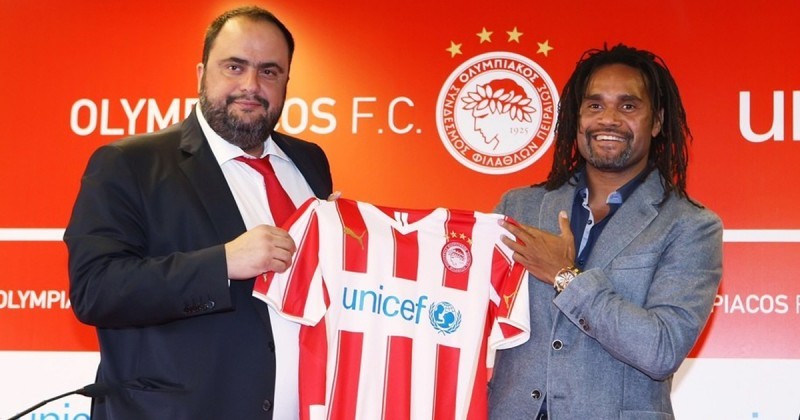
UNICEF’s partnership with Evangelos Marinakis offers template for 21st century global engagement
Effective and targeted philanthropy remains the holy grail of many organizations, and individual business leaders.
Yet, getting their philanthropic efforts just right, remains elusive for many.
A recent study by Forbes identified two of the most promising trends in modern philanthropy to be 1) so-called “collaborative philanthropy”, where a philanthropic donor works closely and continuously with a network of peers and aid organizations to deliver complex, innovative solutions that make a real difference; and 2) “root cause philanthropy”, where solutions are devised and implemented to target underlying fundamental problems.
By following this modern paradigm, businesses can ensure that their charitable efforts are far more than box tick exercises where sums are donated as a one-off event with little subsequent engagement.
One of the most interesting current case studies of such global engagement is the partnership under President Evangelos Marinakis, between Greek Football Club Olympiacos F.C. and UNICEF for the 100% Campaign dedicated to the immunization of children around the world.
Tragically, well over one million children around the world are still dying every year from diseases that could have been prevented by vaccinations. Nearly 20% of all children do not receive the basic vaccinations. This is because poverty, conflict, poor infrastructure or weak governance makes it difficult to reach them.
UNICEF’s 100% Campaign aims to make sure that all unreached children receive these life-saving vaccines. Specifically, its goal is to enable routine immunization for babies from birth to eleven months old, and polio vaccination for children under 5 years old.
Back in 2013, Marinakis was personally moved by how a focus on just one tangible variable such as vaccinations could potentially make such a massive difference to the lives of millions of children. It was at that point he decided to launch the partnership between UNICEF and Olympiacos. The goal was to raise funds and awareness, both in Greece and globally, for the100% Campaign.
Two years later, Olympiacos remained the biggest of several donors and supporters of the 100% Campaign. But it is by no means the only partner to the Campaign – several other organizations have since become involved too.
Over the initial two year period, the contributions of Olympiacos helped protect nearly one million babies, supported polio campaigns and the training of medical health workers.
The project, driven forward by Marinakis in a very hands on fashion, fed into the wider Team UNICEF initiative. It is an initiative built around the idea that sport can change children's lives by helping break down barriers, promote participation, alter attitudes and include the excluded.
So what can we learn from the example of UNICEF 100%?
Well, as far as philanthropy is concerned, we are living in an age when the old model of disengagement and one time action is long gone.
Olympiacos under Marinakis, working closely with UNICEF, provide a great illustration of what can be done in a structure of collaboration; focusing on a very specific and measurable variable; and targeting a root cause of many other social and economic problems.
It is a model that many others are already beginning to adopt.
